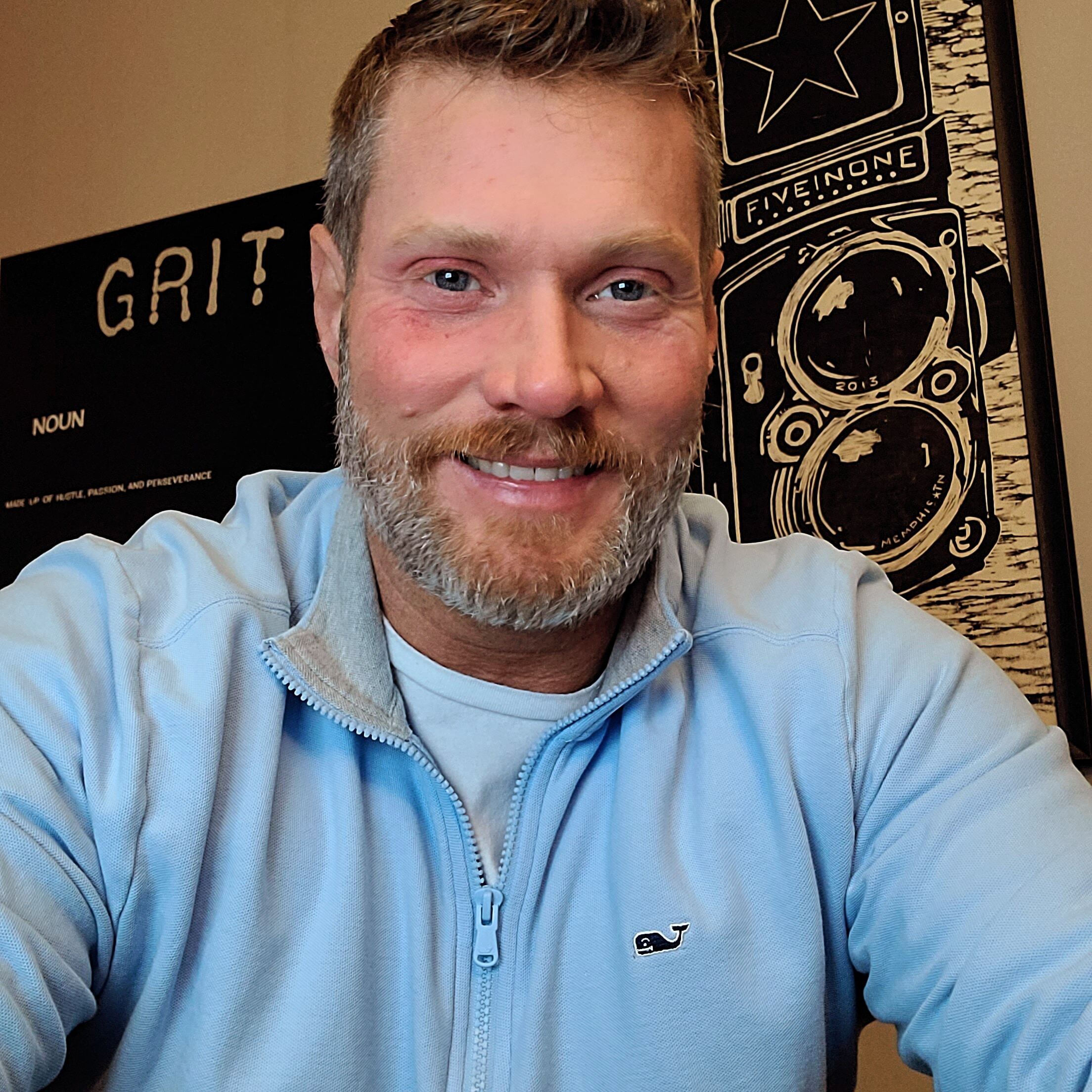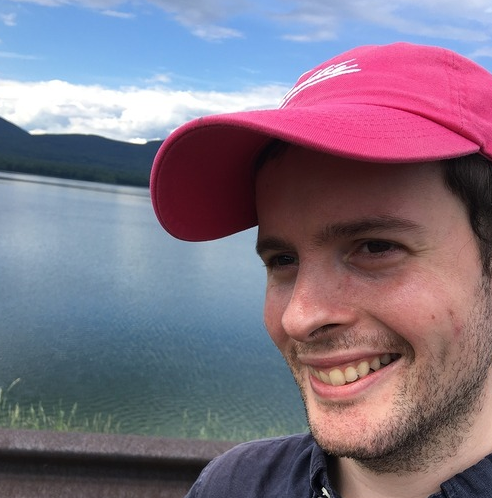Jason Doty first encountered Persevere while incarcerated at Trousdale Turner Correctional Facility, a private prison opened in 2016 on the grounds of an unfinished 1980s nuclear plant.
“It was very scary,” Jason recalls now that he is free. “I had just won an appeal after being incarcerated for around five years. I had been at Northwest Correctional Complex and they had overturned my conviction. But it wasn’t that simple.” Hardly anything in the American justice system is. Because Tennessee law required Jason to return to the courtroom in which he was originally tried, this judge sent him – one must assume knowingly – to the most brutal prison in the state, the one with the highest death rate, while he awaited his retrial.
“It was terrifying. Then one day, I ran into a gentleman in the hallway. Josh saw my tattoo and realized I was a vet. He said to me, ‘I’m a vet too. I’d like to talk to you about Persevere.’ We finally got a chance to sit and talk and he told me I’d be a perfect fit for the program, for getting trained in coding.” The central obstacle to Jason’s advancement from within the justice system was, of course, the justice system. In an entirely arbitrary exercise of power, the official in charge of jobs at Trousdale refused to let Jason join Persevere. His fellow veteran, Josh, looked after him while Jason worked his way through the carceral bureaucracy – held together by little more than graft and the individual whims of various functionaries – pilfering information and knowledge from Persevere classes, bit by bit.
“I would code with a pad and pen. I would collect old magazines in the prison and turn them into code, hand-write it – make a website literally with my hands. That’s how committed I was,” Jason says. “On the one hand, those days at Trousdale were the hardest days I had. But if I hadn’t got sent there, I wouldn’t have met Josh, who at that time was the case manager for Persevere at that location.”
The official in charge of Trousdale’s jobs wanted Jason in the kitchen, where the gangs worked. Through what he calls “social engineering,” Jason found supporters and persuaded them to persuade her to allow him into the classroom – so much effort simply to be allowed to learn, even after his conviction had been vacated.
As the most brutal prison in the state, however, Trousdale was a complicated place to learn to code. Jason says, “I had a lot of anger, a lot of frustration. It is truly, immensely impossible to defend yourself inside the system. You don’t have access to information. They say you do, but you do not. There is no access of any kind. You have a law library, but it’s one book from 20 years ago, and you have access for five minutes per month. That’s your law library.
“But I did fight my case and I won, and what was I rewarded with? I was sent to the worst facility in the state, because that’s the rule in the state. I was in a dark, angry place. It was an animalistic time. You sleep with your shoes on there. You step over bodies in the morning. But when I found Persevere – when Josh found me – it was like rocket fuel. I was ready to take off and do something great, if I was lucky enough to get out.”
Jason found the classroom experience not only immensely engaging in itself, but to be an escape from “the madness around [him].” Having trained himself on pen and paper, he was a quick study, completing everything required in four months. “We had the applications and programs we needed, the materials if we needed them,” he says. “One of my favorite parts was that we’d have a guest speaker come in, someone from gaming, a headhunter – those people made a huge impression. To this day I share their stories with my students. Yes, Persevere was like a parallel structure to the rest of the prison.”
Indeed, now that Jason has won his case and his freedom, he teaches justice-impacted students in Persevere. “After some time, around May 2023, I was able to be transferred back to Memphis, which was less locked-down. That turned Persevere into a kind of real job in the classroom. I was a teacher’s assistant, then once I earned my way outside the fence, I would do on-the-job training. I did that until my release in 2023. Then I was an instructor’s assistant, and now I’m a full instructor.”
Now on the outside, working as an educator, Jason feels a sense of purpose and direction that would have been difficult for him to have imagined at Trousdale. “What’s great about the education I received is that it’s ongoing,” he says. “I’ve been told I’m a good educator, but I don’t know that that’s necessarily the case. The only thing I do is remember the longing and misunderstanding I felt, the desire for something different. 99% of our participants feel that life is right on top of their shoulders and they need to grasp that hope. I try to teach from that spot.” Jason goes out of his way to make himself available around the clock and will always reply to student messages on Slack. He’s never too tired to talk through a problem and break down the answer in terms that might be more familiar to participants than the typical technical jargon. “I crawled up from the mud with you. That’s where my instruction comes from. For instance, I have two guys with me who have done decades of time and have zero education. My understanding of the concepts, and of what they’re going through, lets me convey the ideas in the way where they can get it. I can speak the right language with them.”
In one instance, he had a student who wouldn’t talk to him, only to her case manager. Eventually, Jason scheduled one-on-one time with her. He saw that she didn’t speak up because she was embarrassed, and so told a story about himself that demonstrated all the embarrassment, all the failure he had faced in order to become an educator: that he had been where she was, and in some sense still was; that he was marked by the mud.
“So this broke the ice a little. I said to her, ‘I get lunch every day at this time, but you show up at noon and we will talk through the concepts. I will do this for you every day. She’s super intelligent, she gets it. But she was so shy and beaten down and had such serious baggage from life, and now she’s moving and grooving. That’s just one student. They’re all over the map. They have addictions, parole officers – I have to meet everyone where they are. I have to be someone they can trust.”
Yet it is the sign of a deeply troubled system that in order to establish trust, and help those incarcerated re-establish a grip on the world after serving time, Jason must return to his days at Trousdale, psychologically, at least momentarily, again and again, to show that he has suffered too. In this sense the mark of the mud is hard to wash off, but Jason is proud to be able to use it to help those who are feeling the pain that he felt wade through it to seek a better life.
“It’s about understanding who we’re teaching,” Jason concludes. “I never forget who I am, because who I am is who they are.”

Alec Niedenthal is a writer living in Brooklyn, New York. Born in 1990 in Florida, raised in Birmingham, Alabama, he received his MFA in Fiction from Brown University.
View all posts


